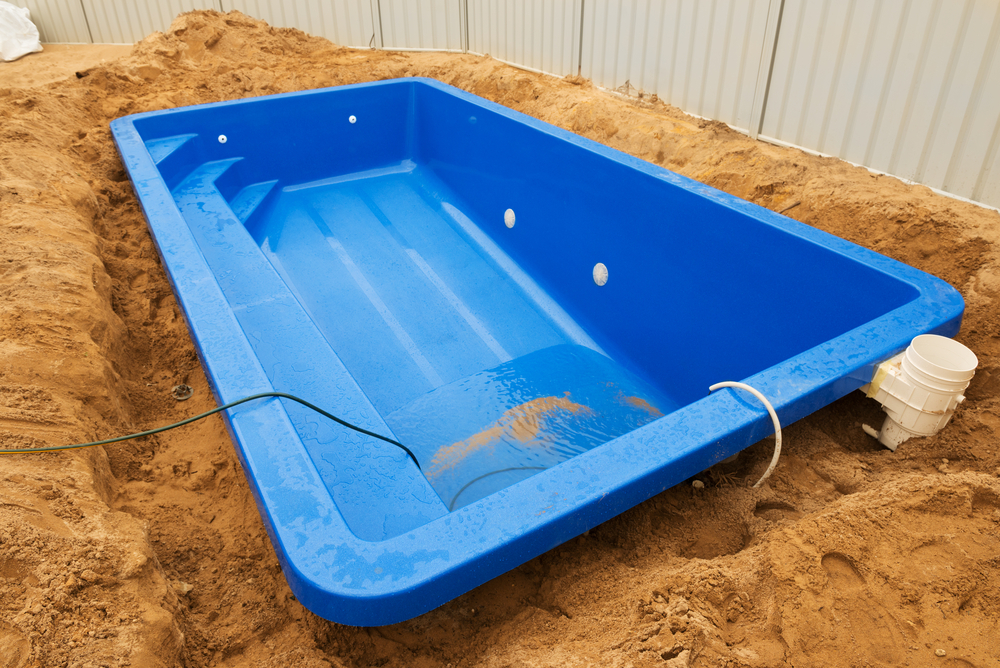There are several areas or industries where the term “prefab” will be used, and the swimming pool and hot tub world is a good example. Referring generally to “prefabricated” products, this is a category that simply means a given product was made beforehand at some kind of facility, often in sections that are easily shipped and then put together at their final destination.
At Packman’s Pools, we’re happy to offer a huge range of custom swimming pool design and manufacturing services, plus construction in several different formats. What exactly does the prefab title mean in the swimming pool construction world, what are some of the pros and cons of this format, and which pool materials might be utilized for prefab pools? This two-part blog series will go over several important themes to be aware of.

Prefab Pool Basics
As the broad definition we listed above indicates, a prefab pool refers to an inground or above-ground pool that’s fully manufactured in a facility before being shipped to your home for installation. In most cases, prefab pools are desirable for those who want quicker installation rather than building a pool on-site, though there are other variables at play here.
There are two primary materials used for permanent prefab pools: Fiberglass and precast concrete. We’ll go over both later in our series.
Benefits of Prefab
There are several benefits of prefab pools for those who go this route:
- Quicker installation based on previous construction, often far quicker than other methods.
- Less noise during the building process, including on your property.
- Multiple installation options, including above-ground, inground and even semi-inground.
- In some cases, cheaper due to being smaller and having fewer size limitations.
Drawbacks of Prefab
There are also some potential drawbacks of prefab pools depending on your needs:
- They are smaller than other types, and usually cannot be larger than about 16 feet wide and 40 feet long.
- They require a bit more maintenance because they have porous plastic surfaces. However, their tile surfaces are very easy to maintain.
- Lifetime costs: These kinds of pools may experience certain larger costs over time, such as the need for more chlorine, more extensive cleaning demands and certain resurfacing needs in other cases. However, modern prefab pools use improved materials that make this less of a concern that it would have been even a few years ago.
- Fewer options: Finally, for those who really want a unique pool, some prefab options are limited to certain shapes. There may be freeform designs from many manufacturers, however, another area where modern technology has improved in recent years.
For more on prefab pools and whether you should consider one, or to learn about any of our swimming pool or spa construction services, speak to the staff at Packman’s Pools today.

